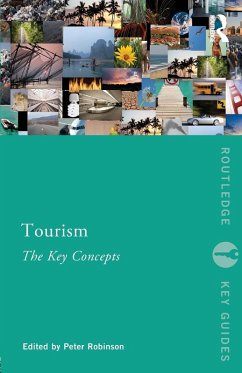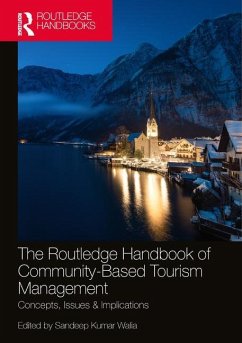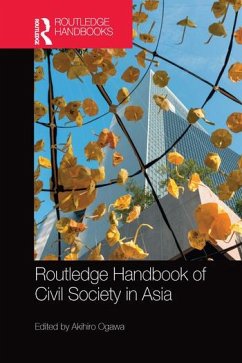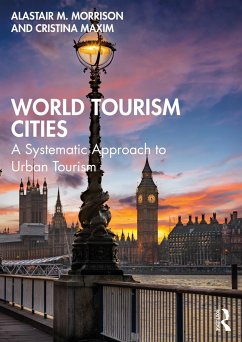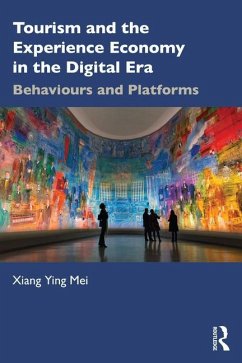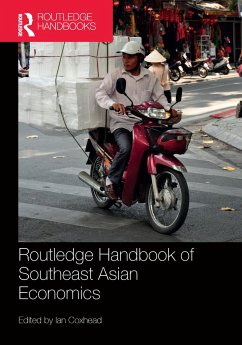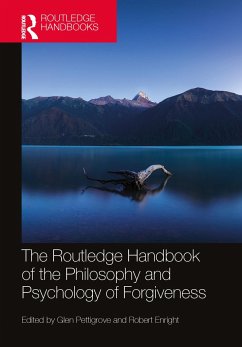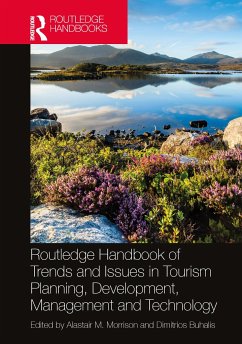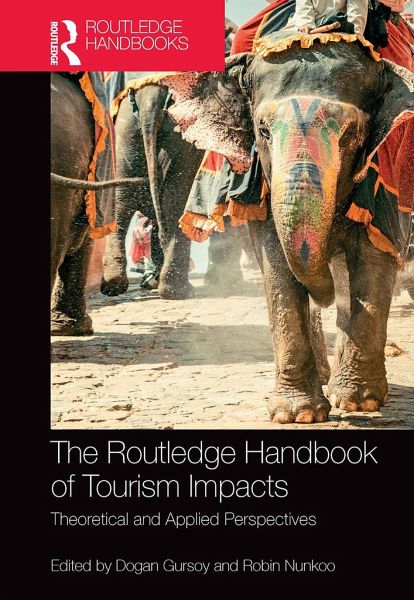
The Routledge Handbook of Tourism Impacts
Theoretical and Applied Perspectives
Herausgegeben: Gursoy, Dogan; Nunkoo, Robin
Versandkostenfrei!
Versandfertig in 6-10 Tagen
49,99 €
inkl. MwSt.

PAYBACK Punkte
25 °P sammeln!
This handbook explores and critically examines both positive and negative impacts of tourism development focusing on the past, present and future issues, challenges and trends from a multidisciplinary global perspective. Through a comparative approach involving international case studies, this book explores our understanding of tourism impacts and contributes to the theoretical development on relationships between tourism impacts and community support for tourism development.This handbook focuses on a variety of geographical locations, drawing from the knowledge and expertise of highly regarde...
This handbook explores and critically examines both positive and negative impacts of tourism development focusing on the past, present and future issues, challenges and trends from a multidisciplinary global perspective. Through a comparative approach involving international case studies, this book explores our understanding of tourism impacts and contributes to the theoretical development on relationships between tourism impacts and community support for tourism development.
This handbook focuses on a variety of geographical locations, drawing from the knowledge and expertise of highly regarded academics from around the world. Specifically, it explores the adoption and implementation of various tourism development and impact management approaches in a wide range of global contexts, while identifying their trends, issues and challenges. It addresses strategies relating to innovation, sustainability and social responsibility, and critically reviews the economic,sociocultural, environmental, political and technological impacts of tourism. The text also identifies future trends and issues, as well as exploring the methods used to study tourism impacts.
Conveying the latest thinking and research, this handbook will be a key reference for students, researchers and academics of tourism, as well as development studies, geography, cultural studies, sustainability and business, encouraging dialogue across disciplinary boundaries and areas of study.
This handbook focuses on a variety of geographical locations, drawing from the knowledge and expertise of highly regarded academics from around the world. Specifically, it explores the adoption and implementation of various tourism development and impact management approaches in a wide range of global contexts, while identifying their trends, issues and challenges. It addresses strategies relating to innovation, sustainability and social responsibility, and critically reviews the economic,sociocultural, environmental, political and technological impacts of tourism. The text also identifies future trends and issues, as well as exploring the methods used to study tourism impacts.
Conveying the latest thinking and research, this handbook will be a key reference for students, researchers and academics of tourism, as well as development studies, geography, cultural studies, sustainability and business, encouraging dialogue across disciplinary boundaries and areas of study.





